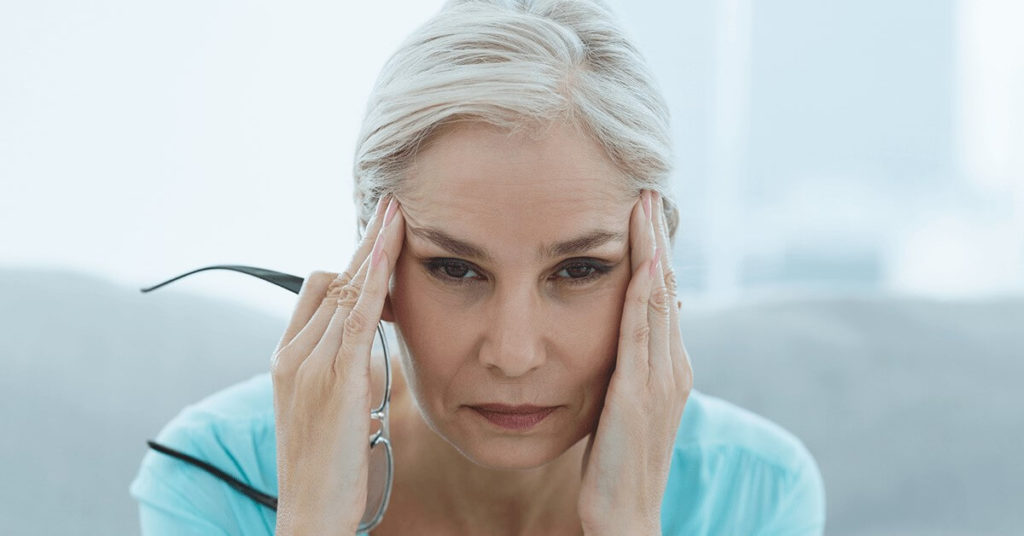
Medically reviewed by
Dacelin St Martin, MD
Triple board-certified in Sleep Medicine,
Internal Medicine, and Pediatrics.
Exercise | Maintain a Sleep Pattern | Create a Cozy Atmosphere | Use Essential Oils | Associate the Bedroom with Sleep | No Stimulants Before Bed | Have a Bedtime Routine
Meditate
Overview
Stress is physical and emotional tension resulting from work-related issues, financial problems, or illnesses.
While a minimal amount of stress is sometimes necessary, for example, to help us keep alert and avoid danger, a disproportionate amount of stress can affect one’s health and quality of life.
One insidious way stress can affect an individual is by inducing insomnia. So in this post, we’ll cover the top eight ways to get quality sleep when stressed. Let’s jump in!
1) Exercise
When we exercise, our brains produce feel-good neurotransmitters called endorphins and other chemicals that allow us to become relaxed and calm. Regular exercise, at least thirty minutes per day, reduces stress.
One study published in the “Frontiers of Physiology” compared psychophysiological responses to an acute psychosocial stressor between individuals who A) did and those who B) did not engage in regular physical exercise. The results found that regular exercise protects against the negative emotional consequences of stress.
Remember, before starting any exercise program, speak to a healthcare professional, especially persons with underlying conditions.[1]
2) Maintain a Sleep Pattern
Being stressed and trying to fall asleep is a massive task. So one might develop strange sleeping patterns.
An abnormal sleeping pattern may mean that a person falls asleep at 10 pm today but tomorrow at 11 pm, and so on. What this does is throw the natural sleep pattern into confusion. So, here’s how to solve that issue: go to bed at the same time every night!
Bedtime is synonymous with sleep time, meaning that the person is under the covers, eyes closed, and poised to fall asleep. Also, having a consistent wake time is recommended. This approach helps to regularize the sleep pattern.[2]
3) Create an Cozy Atmosphere
The bedroom should promote sleeping, and it should be relaxing. Here’s how one can make a bedroom more sleep-friendly:
- Decorate your room using cool colors
- Darken the room by using blackout curtains to keep out artificial light
- Lower the bedroom temperature to around 70 degrees
- Keep the environment quiet, and drone out noise with a fan or a white noise machine
- Declutter your bedroom as clutter is distracting and can induce anxiety and prevent sleep[3][4]
4) Use Essential Oils
Lavender oil is well-known for its role in creating a soothing, relaxing environment, and as such, it’s used in massages and various relaxation therapies. A diffuser with this essential oil can help us fall asleep more effortlessly.
A 2015 study in “Nursing in Critical Care” reviewed the effect of using aromatherapy on depression, anxiety, relaxation, and disorders related to sleep and stress. The researchers determined that lavender essential oil improves sleep quality and reduces anxiety in patients with coronary artery disease.[5]
5) Associate the Bedroom with Sleep
If we carry out other tasks in the bedroom, such as work, watching TV, or exercising, the brain will link the room to activity.
On the other hand, using the bedroom only for sleep will allow the brain to relate it to rest time, making it more likely for one to fall asleep shortly after entering the bedroom.
This type of association is a psychological method that dates back centuries to a Russian physiologist, Ivan Pavlov. It is called Pavlovian conditioning and allows the brain and body to react to specific triggers.[6]
6) No Stimulants Before Bed
Caffeine can remain in the body and affect it for several hours after consumption.
It’s recommended that insomniacs avoid caffeine along with other stimulants as the day draws closer to bedtime.
Research validates these claims regarding stimulants. One study that appears in the “Journal of Clinical Sleep Medicine” demonstrated that a moderate dose of caffeine at bedtime, 3 hours before bedtime, or 6 hours before bedtime, has significant effects on sleep disturbance.
The effects of caffeine on total sleep time empirically support sleep hygiene recommendations for avoiding caffeine 6 hours before bedtime. Here’s an idea of what to avoid:
7) Have a Bedtime Routine
We can train our bodies to get used to a set bedtime. Here’s an example of a bedtime routine:
Have a hot bath, brush your teeth and hair, turn down the bed, and say good night to the kids or other family members. This type of pattern is an example of another conditioning technique that has been proven quite effective.
The brain will remember this routine the more it is practiced and associate it with sleep time.
When this happens, we fall asleep much more quickly. This approach is also why we feed, bathe, and read to kids before bedtime.[8]
8) Meditate
Meditation is multipurpose in this case, as it is instrumental in relieving stress and inducing sleep through relaxation. Meditation, for as little as five minutes before bedtime, can help reduce stress and improve sleep.
Clinicians from different medical fields encourage mindful meditation as a management modality for stress-induced insomnia. Combining aromatherapy with meditation will yield even better results.[9]
What’s the Takeaway?
Stress and sleep are intimately linked, and as such, excess and prolonged stress often becomes a hindrance to sleep. Stress, coupled with a lack of adequate or quality sleep, negatively affects our quality of life, cognitive function, and productivity. Consequently, if left unresolved, stress-induced insomnia can evolve into more significant mental and physical issues.
Suppose sleeplessness persists, even when using these natural remedies for sleep while stressed. In that case, one should seek professional help from a mental healthcare provider, medical doctor, or sleep specialist.
Sleep is essential and vital in our health and wellness, so we must do what is necessary to ensure we do not lack quality sleep.
References:
- Childs, E., & de Wit, H. (2014). Regular exercise is associated with emotional resilience to acute stress in healthy adults. Frontiers in Physiology, 5. https://www.ncbi.nlm.nih.gov/pmc/articles/PMC4013452/
- Kalmbach, D. A., Anderson, J. R., & Drake, C. L. (2018). The impact of stress on sleep: Pathogenic sleep reactivity as a vulnerability to insomnia and circadian disorders. Journal of Sleep Research, 27(6), e12710. https://www.ncbi.nlm.nih.gov/pmc/articles/PMC7045300/
- Hume, K., Brink, M., & Basner, M. (2012). Effects of environmental noise on sleep. Noise and Health, 14(61), 297. https://pubmed.ncbi.nlm.nih.gov/23257581/
- Harding, E. C., Franks, N. P., & Wisden, W. (2019). The Temperature Dependence of Sleep. Frontiers in Neuroscience, 13. https://www.ncbi.nlm.nih.gov/pmc/articles/PMC6491889/
- Karadag, E., Samancioglu, S., Ozden, D., & Bakir, E. (2015). Effects of aromatherapy on sleep quality and anxiety of patients. Nursing in Critical Care, 22(2), 105–112. https://pubmed.ncbi.nlm.nih.gov/26211735/
- Yazdi, Z., Loukzadeh, Z., Moghaddam, P., & Jalilolghadr, S. (2016). Sleep Hygiene Practices and Their Relation to Sleep Quality in Medical Students of Qazvin University of Medical Sciences. Journal of Caring Sciences, 5(2), 153–160. https://www.ncbi.nlm.nih.gov/pmc/articles/PMC4923839/#R19
- Drake, C., Roehrs, T., Shambroom, J., & Roth, T. (2013). Caffeine Effects on Sleep Taken 0, 3, or 6 Hours before Going to Bed. Journal of Clinical Sleep Medicine, 09(11), 1195–1200. https://www.ncbi.nlm.nih.gov/pmc/articles/PMC3805807/
- Markwald, R. R., Iftikhar, I., & Youngstedt, S. D. (2018). BEHAVIORAL STRATEGIES, INCLUDING EXERCISE, FOR ADDRESSING INSOMNIA. ACSM’S Health & Fitness Journal, 22(2), 23–29. https://www.ncbi.nlm.nih.gov/pmc/articles/PMC6715137/
- Goyal, M., Singh, S., Sibinga, E. M. S., Gould, N. F., Rowland-Seymour, A., Sharma, R., Berger, Z., Sleicher, D., Maron, D. D., Shihab, H. M., Ranasinghe, P. D., Linn, S., Saha, S., Bass, E. B., & Haythornthwaite, J. A. (2014). Meditation Programs for Psychological Stress and Well-being. JAMA Internal Medicine, 174(3), 357. https://jamanetwork.com/journals/jamainternalmedicine/fullarticle/1809754?

